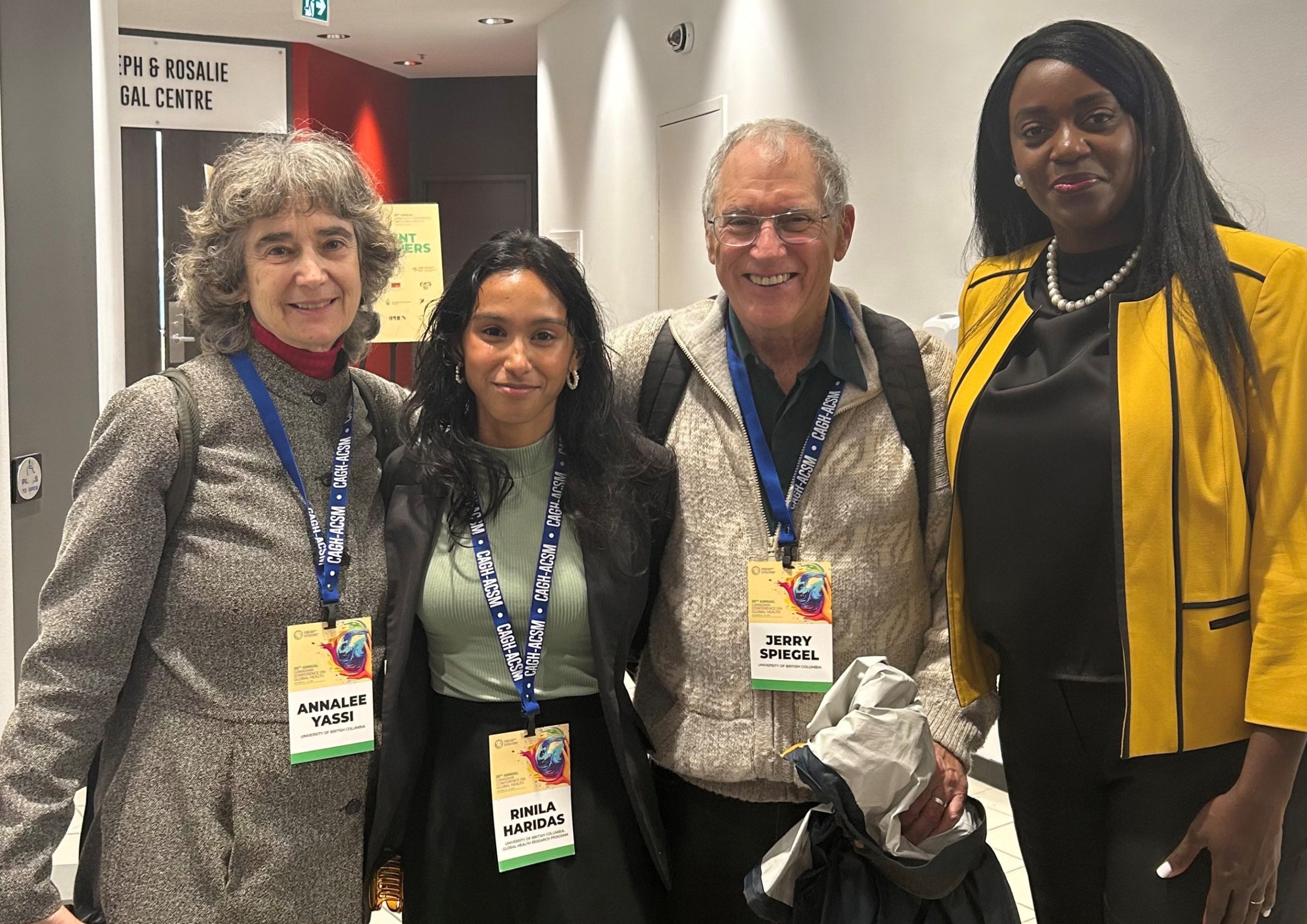
Drs. Yassi and Spiegel, Rinila Haridas, along with one of the conference co-chairs, Dr. Margaret Mutumba of Western University.
I had the honor of presenting a poster at the Canadian Conference on Global Health (CCGH) hosted by the Canadian Association for Global Health and partners. This year’s conference theme focused on the poly-crisis encompassing the multifaceted problems of conflict, climate change, governance and COVID-19 that affect the planet and our health and well-being to highlight the importance of connection, collaboration and multi-level integration.
At #CCGH2024, I was also honoured to be one of the recipients of the best in-person poster award amongst the 100 incredible posters that were presented. My presentation encompassed our team’s field work to understand the barriers and facilitators of ex-miner health systems and social benefits in Malawi, Southern Africa.
The conference allowed for deep learning, building connections and exploring the world through global health a little more. I would like to thank all the organizers for this great event and the wonderful people who I was able to meet and get to know, including all the School of Population and Public Health (SPPH) staff in attendance. I am grateful for our team members and partners in Malawi and South Africa, as well our incredible team from the UBC SPPH Global Health Research Program: Dr. Annalee Yassi, Dr. Jerry Spiegel, Dr. Khumbo Kalua and Karen Lockhart for their support on this project and continued mentorship.
Learn more about the presented project below!
Decades of colonial and apartheid regimes led to hundreds of thousands of workers being recruited from “labour-sending” areas in Africa, including Malawi, by South Africa’s gold mines, where they were subjected to oppressive working conditions, insufficient institutional responsibility, grave injustice and a public health crisis of high occupational lung diseases, particularly, tuberculosis and silicosis. Despite initiatives now being pursued to provide the medical services and social benefits, they have only marginally been made available to those entitled to receive them: Malawian ex-miners and their families have continued to face substantial access challenges. Our work in Malawi encompassed conducting semi-structured interviews with 14 ex-miners and 5 key informant stakeholders (healthcare providers, government officials, non-profit organizations), in addition to field observations. A lack of both South African and Malawian government and mining company accountability and enforcement, as well as a slow, inefficient and strict benefits processes, result in ex-miners describing a low quality of life: lack of food, nutrition, sanitation/hygiene, employment and being unable to provide for their families or contribute to their communities. Despite Malawi’s government’s positive intent to progress occupational health, infrastructure and resource allocation remain a major challenge. In-country capacity and resilience in this sector is vital, in addition to potential integration of occupational health in Malawi’s publicly funded health systems. It is also important to coordinate between employer responsibility and state service provision and increase awareness of occupational services/the benefits process. Cohesively integrating political, social and health systems while prioritizing accountability, equity and community engagement is vital to optimize resource allocation, ameliorate health outcomes and foster sustainable health in Malawi.
The project outputs involve a reflective case study on ex-migrant miner perspectives on occupational health service and social benefit access issues encompassing barriers and facilitators of governance, health systems and mining companies, as well as a health systems integration analysis feasibility study in relation to the use of computer assisted detection to facilitate health systems in Malawi (stay tuned!).